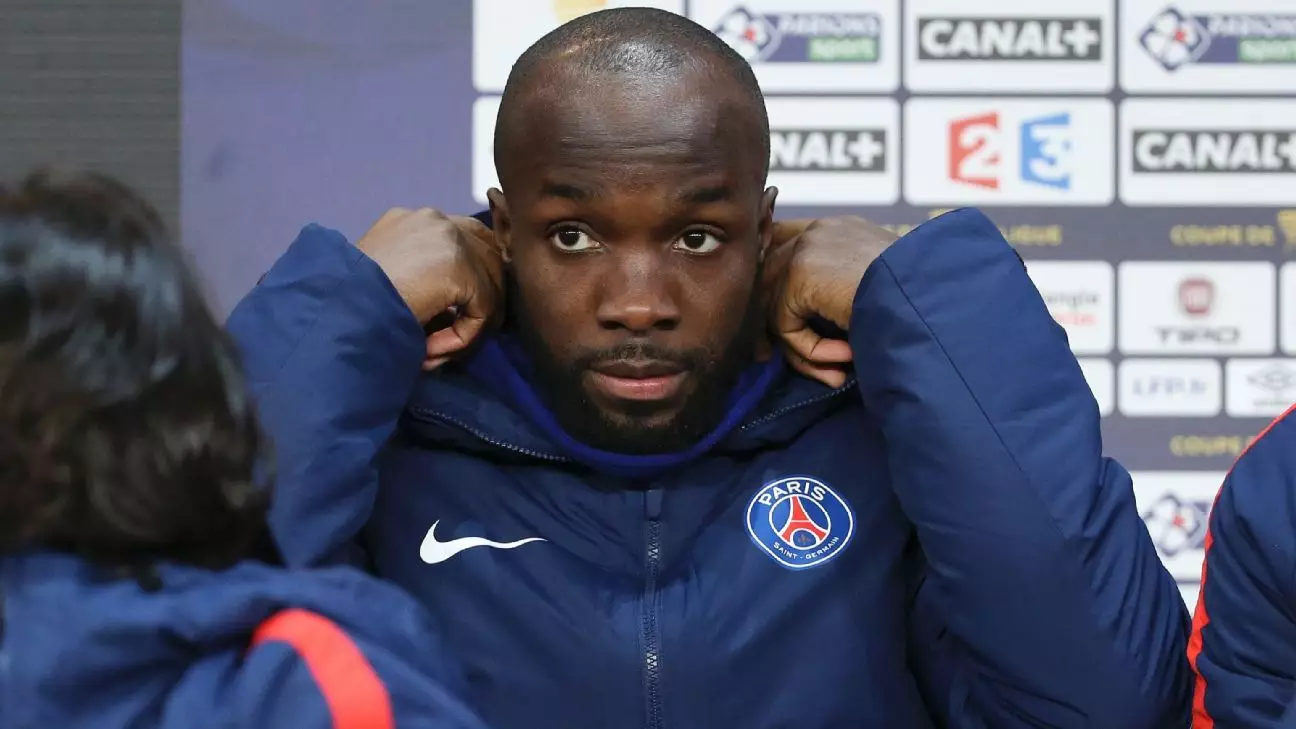In a bold assertion against the entrenched authority of FIFA, Lassana Diarra’s recent legal triumph signifies a turning point in the ongoing battle for fairness and transparency within professional football. For years, players have been at the mercy of a transfer system that often favors clubs and governing bodies, casting shadow over the rights of athletes who dedicate their lives to the sport. Diarra’s persistent challenge, culminating in a European Court of Justice ruling, exposes the fundamental flaws in football’s regulatory framework—a system that historically prioritized commercial interests over individual freedoms. His willingness to confront such a formidable institution demonstrates the growing power of strategic legal action in reshaping sports governance.
What makes Diarra’s case particularly compelling is not merely the substantial monetary claim but the moral victory it represents. Claiming €65 million in damages, the former midfielder highlights the profound impact of unfair regulation on players’ careers, especially those who are less famous but equally deserving of justice. His stand emphasizes that behind the glamour of football, many athletes face systemic hurdles that hinder their mobility and professional growth. By holding FIFA accountable, Diarra is challenging the status quo—and inspiring a broader conversation about players’ rights and the need for reform within the sport.
Legal Challenges as Catalysts for Systemic Change
This legal battle underscores a stark reality: FIFA’s rules, long deemed inflexible and opaque, are now scrutinized under the lens of European labor and competition laws. The European Court’s recognition that certain transfer regulations impede free movement reveals the contradictions within FIFA’s governance—rules crafted in a closed-door manner, often disconnected from the rights of players. Diarra’s case exposes these inconsistencies, emphasizing that even the most powerful institutions are not immune from legal accountability when it comes to fairness and competition.
FIFA’s attempt to sidestep criticism by promising regulatory amendments, while commendable, rings hollow without tangible reforms that prioritize athlete rights. The governing body’s reluctance to openly comment on ongoing legal proceedings suggests discomfort with the challenge to its authority. Yet, it is exactly this resistance that fuels players’ frustrations and bolsters the case for external legal intervention. Diarra’s actions demonstrate that legal activism can be an effective tool to challenge entrenched systems and compel governing bodies to evolve.
The Personal Courage of an Underestimated Champion
Diarra’s narrative is more than a legal case; it is a story of resilience and moral conviction. His decision to pursue legal action after being sidelined for nearly a season reveals a man unwilling to accept injustice quietly. His statement reveals not only his personal resolve but also underscores a broader desire to forge a better future for aspiring footballers who lack the resources to challenge powerful organizations. Diarra positions himself as a representative of those lesser-known players, drawing attention to a systemic imbalance that perpetuates inequality within the sport.
Furthermore, his distinction as a high-profile player who chose to fight rather than accept the status quo elevates the significance of his stance. It’s a reminder that the fight for fair treatment is not limited to obscure athletes; even stars with successful careers and financial security recognize the need to confront systemic abuses. His advocacy champions the idea that integrity and justice should transcend fame, impacting the entire ecosystem of professional football.
Implications Beyond the Playing Field
The current legal proceedings could serve as a blueprint for systemic reform, not only within football but across professional sports worldwide. The class-action lawsuit, which aims to benefit up to 100,000 players, exemplifies collective action’s potential to bring about sweeping change. If successful, this legal initiative could force FIFA and other governing bodies to overhaul their rules, aligning them more closely with European laws that protect workers’ rights and foster competitive equity.
Diarra’s case illuminates a broader truth: sports organizations are increasingly vulnerable when their policies clash with fundamental human rights. The legal push from players and their unions signifies a shift towards accountability and transparency—principles that professional sports should embrace rather than resist. As this case unfolds, it may redefine how governing bodies approach reforms, prioritizing fairness over profits, and athlete welfare over institutional preservation.
The evolution of this legal challenge signals a future where players no longer stand defenseless against systemic injustice. Instead, they have newfound legal leverage to demand change, challenging the arrogant dominance of regulatory bodies while asserting their right to fair treatment. If Diarra’s fight gains momentum, it will serve as a clarion call for reform that reverberates across all levels of competitive sports—a testament to the enduring power of courage and legal integrity.


Leave a Reply